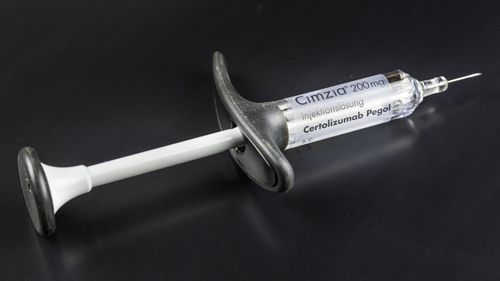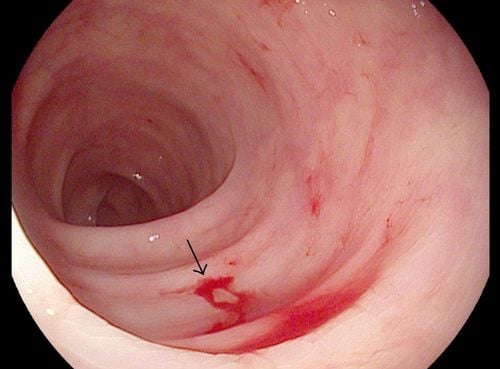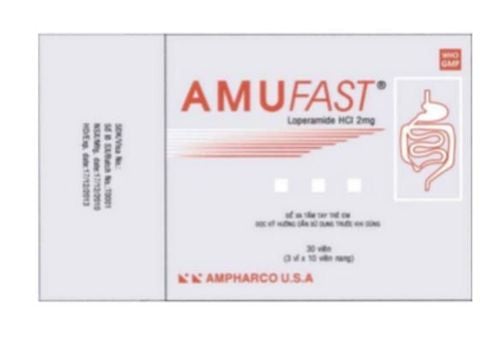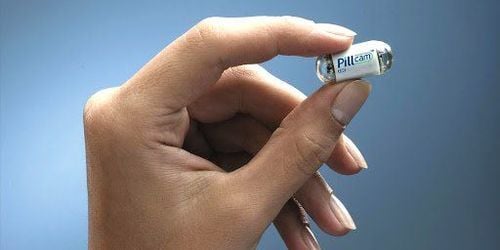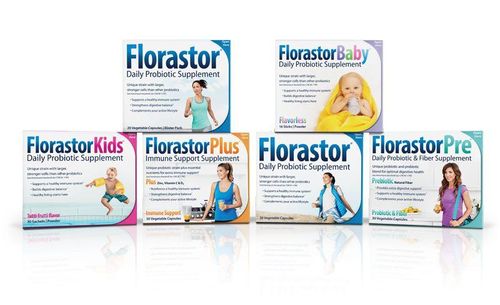This is an automatically translated article.
Post by Master, Doctor Mai Vien Phuong - Gastrointestinal Endoscopy - Department of Medical Examination & Internal Medicine - Vinmec Central Park International General Hospital.
Probiotics target the inflammatory process, they are used to treat moderate to severe Crohn's disease and are often the next step in treatment after conventional therapies fail.
1. Overview
Crohn's disease is a chronic inflammatory bowel disease, because it interferes with the digestion of food, absorption of nutrients as well as the elimination of waste. The disease can also cause permanent bowel damage if not treated properly and promptly.
There is currently no cure for Crohn's disease, but there are methods to help reduce the disease. The goals of treatment include:
Reduce or eliminate inflammation Prevent intestinal damage Maintain remission Medical treatments for Crohn's disease include conventional medications and probiotics. Biologics are effective in relieving the symptoms of Crohn's disease. But these treatments can put people at higher risk for infections and some cancers.
2. Biological therapy in the treatment of Crohn's disease
Symptom relief is the primary goal of people with Crohn's disease. Biologic therapies can help relieve symptoms, as well as heal damage to the gut caused by inflammation.
Biologic therapies are often prescribed for people with more severe Crohn's disease and whose symptoms do not improve with other treatments.
However, current guidelines recommend that doctors also prescribe biologics for people with severe disease as a first-line approach. Biologic therapies work by blocking chemicals that cause inflammation in your gut.
Most biological therapies in the treatment of Crohn's disease block a protein called tumor necrosis factor (TNF). Other biologics that suppress immune cells are called integrins, while others act on proteins called interleukin-23 (IL-23) and interleukin-12 (IL-12). This is how biologic therapies stop inflammation in the intestines in people with Crohn's disease.
Anti-TNF biologics bind to and block a protein that promotes inflammation in the gut as well as other organs and tissues.

3. Biological preparations
Crohn's treatments have evolved, including biologics (made from living cells). Probiotics target the inflammatory process. They are used to treat moderate to severe Crohn's disease and are often the next step in treatment after conventional therapies have failed.
Probiotics promote bowel healing and maintain remission of Crohn's disease symptoms. Probiotics do not suppress the overall immune system the way some drugs do because they target specific mechanisms of the inflammatory process. However, they reduce the ability to fight infection and increase the risk of cancer.
Probiotics work in one of two ways:
Anti-TNF probiotics target the inflammatory protein tumor necrosis factor (TNF) factor. Integrin-blocking probiotics and selective adhesion molecule (SAM) inhibitors stop inflammatory cells from finding vulnerable areas in the gut so it has time to heal. Probiotics have traditionally been used as part of a step-by-step approach when other treatments have not yielded the desired results. Guidelines currently support the selection of an appropriate therapy based on prognosis.
This means that for people with severe illness, probiotics can be given immediately and may prevent some damage before the disease even begins.
Crohn's disease cannot be cured, but there are several treatment options available to reduce the inflammation and symptoms of the disease. Biologics are very effective at improving symptoms, but they also have certain side effects. Therefore, your doctor will help you decide whether or not to use early biologic therapy and how often.
Please dial HOTLINE for more information or register for an appointment HERE. Download MyVinmec app to make appointments faster and to manage your bookings easily.
References:Aminosalicylates [Fact sheet]. (2018) crohnscolitisfoundation.org/assets/pdfs/aminosalicylates.pdf Biotherapies. (n.d.). crohnsandcolitis.ca/Living-with-Crohn-s-Colitis/Treatments-medications/Medications/Biotherapies Deiana S, et al. (2017). Biosimilars in inflammatory bowel disease: A review of post-marketing experience. DOI: 10.3748/wjg.v23.i2.197 Immunomodulators. (2009) crohnscolitisfoundation.org/resources/immunomodulators.html Mayo Clinic Staff. (2018). Crohn's disease. mayoclinic.org/diseases-conditions/crohns-disease/symptoms-causes/syc-20353304






